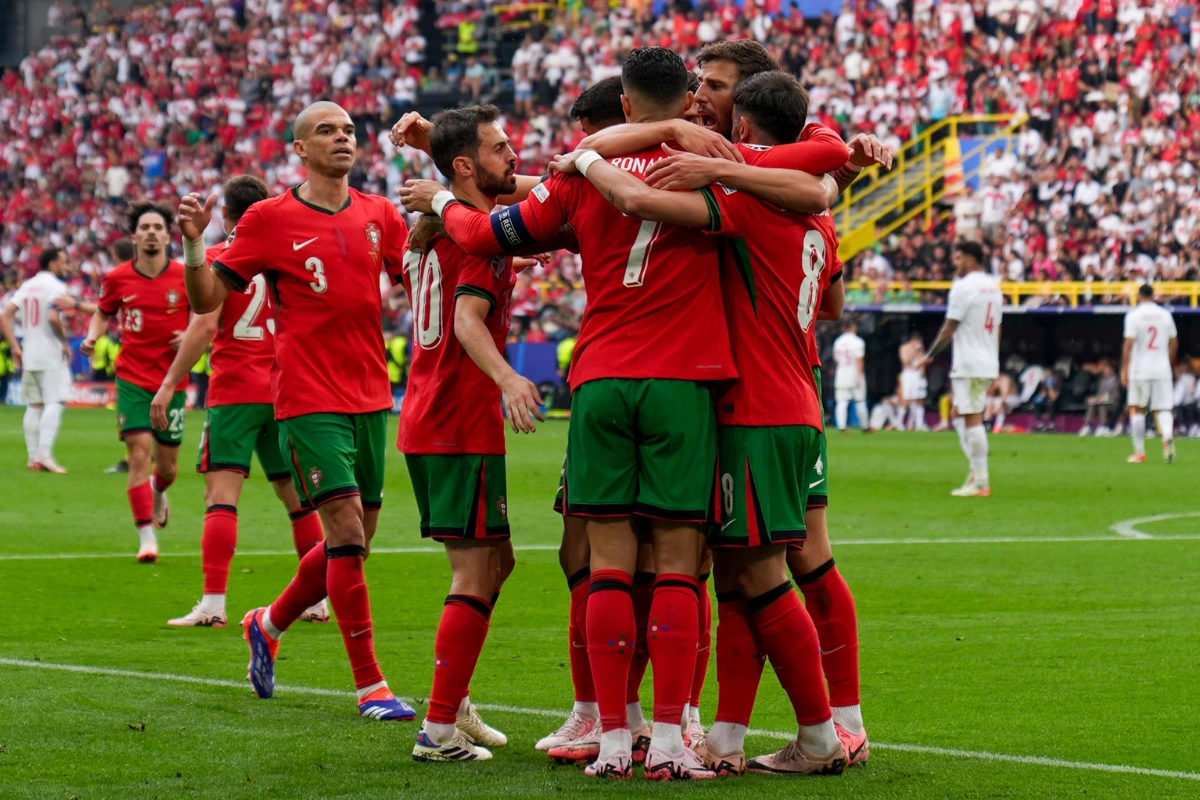Introduction
When you think about European football, there’s no way you can skip Portugal. The country may be small, but its footballing legacy is enormous. Over the years, Portugal has evolved from underdogs to champions, winning hearts all over the globe.
Early Days of Portugal’s National Team
The first official matches
In 1921, Portugal faced Spain in their first-ever official match. The team struggled initially, facing stronger and more experienced European nations.

Struggles and milestones in the early years
For decades, Portugal was seen as a second-tier team, struggling to qualify for major tournaments. Nevertheless, each failure paved the way for subsequent achievements.
The Rise of Portugal in International Football
The golden generation of the 1990s
In the 1990s, Portugal gave the world a “golden generation” featuring players such as Luís Figo and Rui Costa, among others. They brought flair and hope, showing Portugal could compete with the best.
Influence of legendary players
This era set the stage for Portugal’s eventual rise, inspiring a generation and creating a new footballing identity.
Portugal’s Major Achievements
UEFA Euro 2016 victory
Portugal’s most significant football moment came in 2016, when they defeated France to win the UEFA European Championship. Eder’s late goal is forever etched in football history.
UEFA Nations League triumph
In 2019, Portugal won the inaugural UEFA Nations League, further proving their consistency and strength on the international stage.
World Cup performances
While Portugal has yet to win a World Cup, they’ve had strong showings, notably finishing fourth in 2006.
Cristiano Ronaldo’s Impact
Becoming a global icon
Cristiano Ronaldo is synonymous with Portuguese football. His passion, drive, and unbelievable skills have transformed Portugal’s image globally.
Records and milestones with the national team
Ronaldo is Portugal’s all-time top scorer and most-capped player, with countless records that may never be broken.
Key Players Throughout History
Eusébio: The Black Panther
With nine goals and Portugal finishing third in the 1966 World Cup, Eusébio was a shining star. His power and grace made him a global superstar.
Luís Figo: The magician of the wing
Portugal was a strong contender during Figo’s time, thanks to his exceptional dribbling and vision, which earned him the Ballon d’Or.
Current stars shaping the future.
Today, stars like Bruno Fernandes, Bernardo Silva, and João Félix are carrying the torch forward, keeping Portugal competitive.
Tactical Evolution of the Team
Defensive styles and counterattacks
Portugal was once known for its creative attacking play, but under coaches like Fernando Santos, it adopted a more pragmatic, defensive approach.
Changes under different coaches
From the attacking play of the past to the tactical discipline of today, the national team has continuously evolved to remain competitive.
Rivalries and Memorable Matches
The fierce battles with Spain
Matches against Spain are electric, thanks to geographical proximity and a shared history. These games are always thrilling.
Iconic clashes against Germany and France
Portugal has played many memorable games against Germany and France, creating moments fans will never forget.
The Portuguese Football Federation (FPF)
Development programs and academies
To ensure a consistent flow of future stars, FPF places a high priority on developing young talent.
Support for grassroots football
Grassroots football is strong in Portugal, with local clubs playing a crucial role in community life and talent development.
Fan Culture and Support
The role of “A Seleção” fans
Portuguese fans are some of the most passionate in the world. Whether at home or abroad, they create an unforgettable atmosphere.
Football as a national identity
Football is more than just a sport in Portugal; it’s a source of pride and unity for the entire nation.
Youth Development and Future Stars
Importance of academies like Sporting CP
Sporting CP, Benfica, and Porto have excellent academies, producing talents like Ronaldo, João Moutinho, and Nani.
Rising talents to watch
New names like Gonçalo Ramos and António Silva are already making waves, promising a bright future.
Portugal’s Style of Play
From flair to tactical discipline
Portugal’s play has shifted from an all-out attacking style to a balanced, tactical approach, making them harder to beat.
Strengths and weaknesses
Their strength lies in technical ability and teamwork, though they sometimes struggle against ultra-defensive teams.
Challenges Ahead for Portugal
Transition after Ronaldo
Replacing a legend like Ronaldo will be a massive challenge. Finding a new leader and focal point is critical.
Maintaining competitiveness
As new talents emerge, maintaining the same high standards will be essential to remain among football’s elite.
Impact on Global Football
Portuguese players in international leagues
Portuguese players shine across Europe, from the Premier League to La Liga, showcasing the depth of the country’s talent.
Influence on coaching and management abroad
Portuguese coaches, such as José Mourinho and others, have had a significant impact worldwide, disseminating their tactical knowledge.
Conclusion
Portugal’s national football team has come a long way—from struggling newcomers to European champions. With a rich history, passionate fans, and incredible talent, Portugal has earned its place among the footballing greats. The future looks bright, and fans worldwide eagerly await what’s next.
FAQs
1) What is Portugal’s most significant football achievement?
Winning the UEFA Euro 2016 is considered Portugal’s most significant achievement so far.
2) Who is Portugal’s all-time top scorer?
With more than 120 goals for Portugal, Cristiano Ronaldo is the record holder.
3) How did Portugal perform in the 2022 World Cup?
Portugal reached the quarterfinals but was eliminated by Morocco in a surprising upset.
4) Which clubs produce most of Portugal’s national players?
Sporting CP, Benfica, and FC Porto are the primary sources of top talent for the national team.
5) Why is Portuguese football so entertaining?
It combines technical skill, creativity, and tactical intelligence, making matches exciting and unpredictable.